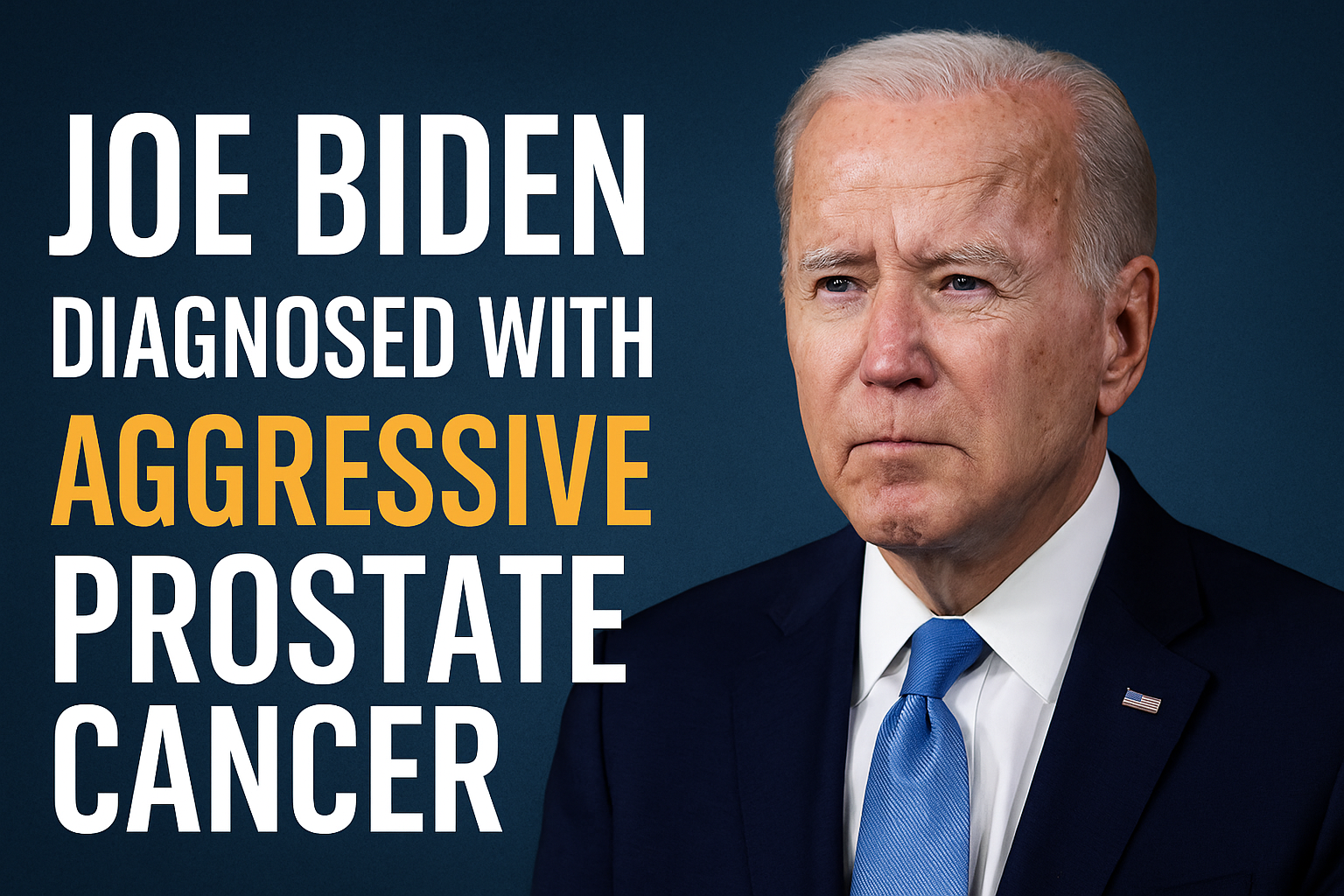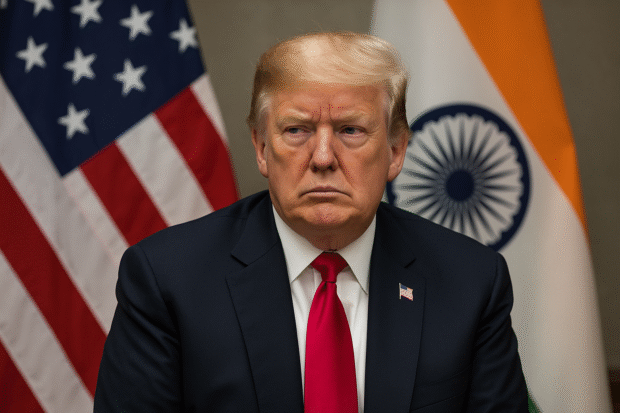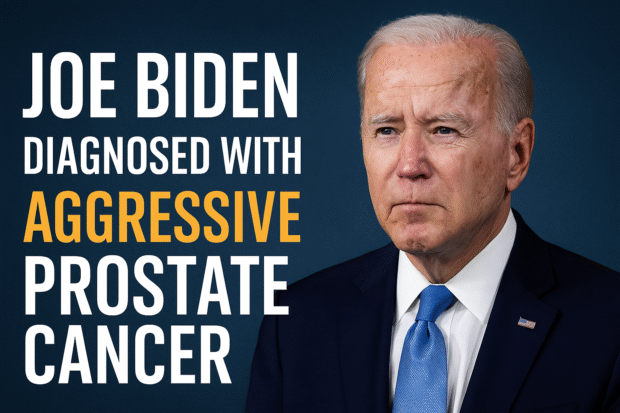
According to the Hindustan Times and other reliable sources, Biden’s prostate cancer has a Gleason score of 9 (Grade Group 5). This is considered one of the most aggressive forms of prostate cancer, with a higher likelihood of rapid growth and spreading. The cancer was discovered during a routine medical check-up after the former president exhibited urinary symptoms and fatigue.
Despite the advanced nature of the cancer, doctors have stated that the condition remains hormone-sensitive, which allows for effective management through androgen deprivation therapy (ADT) or hormone therapy. This form of treatment is typically used to lower male hormone levels that fuel cancer growth. Biden is currently evaluating additional treatment options, including chemotherapy, radiation therapy, and newer targeted therapies.
A History of Health Challenges
Joe Biden has had a long public life marked by personal and professional challenges, including health issues. In the past, he has suffered from brain aneurysms, atrial fibrillation, and sleep apnea. During his presidency, Biden’s medical reports indicated conditions such as spinal arthritis, gastric reflux, and peripheral neuropathy.
Questions surrounding Biden’s cognitive health had also emerged, particularly in the final years of his presidency. Public appearances featuring verbal gaffes, memory lapses, and physical frailty had sparked speculation about his capacity to serve another term. These issues contributed to his eventual decision not to seek reelection in 2024, choosing instead to endorse Vice President Kamala Harris as the Democratic Party’s nominee.
The recent cancer diagnosis adds another dimension to Biden’s already complex health profile. It further underscores the immense physical toll that decades of public service can have on political figures, especially those well into their 80s.
Political Reactions and Public Response
Joe Biden’s prostate cancer diagnosis has led to an outpouring of support from across the political spectrum. Prominent leaders, including Donald Trump, Barack Obama, and Kamala Harris, have expressed solidarity with the former president. Political figures have taken to social media to share their prayers and support, reflecting a rare moment of bipartisan unity.
Former First Lady Jill Biden has also come under scrutiny from some conservative commentators, who accused her of concealing the severity of Biden’s health issues for political purposes. Allegations of “elder abuse” and “cover-ups” have emerged from right-wing media circles, with critics questioning why Biden continued public appearances while allegedly undergoing medical evaluations.
However, supporters and medical professionals have pushed back against these claims, stating that prostate cancer often develops without immediate, obvious symptoms and that early detection is difficult without thorough screening.
What This Means for Prostate Cancer Awareness
Joe Biden’s diagnosis has significantly raised awareness about prostate cancer, especially in elderly men. In the United States, about 1 in 8 men will be diagnosed with prostate cancer during their lifetime. The American Cancer Society estimates that over 35,000 men will die from the disease in 2025 alone.
With Biden’s public profile, experts hope his diagnosis will lead to increased advocacy for prostate cancer screening, particularly for men over 50. Early detection remains key in managing and treating the disease before it spreads beyond the prostate gland.
Doctors recommend that men, particularly those with a family history of prostate cancer or those over the age of 60, undergo regular PSA (prostate-specific antigen) testing and consult urologists if symptoms like frequent urination, back pain, or pelvic discomfort arise.
Biden’s Legacy in the Face of Illness
Despite the health crisis, Joe Biden’s legacy as the 46th President of the United States remains intact. He steered the country through the COVID-19 pandemic, restored diplomatic ties with several global partners, and implemented major economic and social reforms during his tenure.
His decision to step down in 2024 and support Kamala Harris was seen as a responsible move, acknowledging both political realities and personal limitations. Now, with the prostate cancer diagnosis, Biden’s public appearances are likely to decrease, but his influence and symbolic leadership remain strong within the Democratic Party.
Conclusion
The news of Joe Biden’s prostate cancer has brought renewed focus on aging leaders, the importance of transparency in public health, and the need for better awareness around prostate cancer. While the diagnosis is serious, Biden is said to be in good spirits and committed to undergoing necessary treatments.
As the world watches closely, Biden’s personal battle with cancer becomes not only a test of resilience but also a reminder of the human side of leadership. His journey could potentially become a turning point in public health discussions around cancer awareness and elder care.
Read: Mother’s Heartbreaking Plea Fails to Prevent Son’s Death in Kashmir Encounter

















Be the first to leave a comment